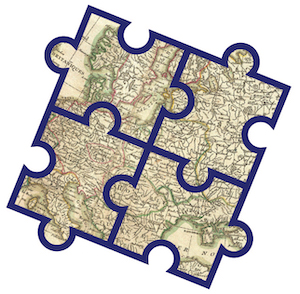PLURAL. History. Culture. Society. Journal of History and Geography Department, „Ion Creangă” State Pedagogical University
PLURAL. History. Culture. Society. Journal of History and Geography Department, „Ion Creangă” State Pedagogical University
Publishing House: Facultatea de Istorie și Geografie, Universitatea Pedagogică de Stat „Ion Creangă”
Subject(s): History, Historical Geography, Political Sciences, Sociology, Cultural Anthropology / Ethnology
Frequency: 2 issues
Print ISSN: 2345-1262
Online-ISSN: 2354-184X
Status: Active
- 2013
- 2014
- 2015
- 2016
- 2017
- 2018
- 2019
- 2020
- 2021
- 2022
- 2023
- 2024
- Issue No. 1-2/I
- Issue No. 1-2/II
- Issue No. 1/III
- Issue No. 2/III
- Issue No. 1/IV
- Issue No. 2/IV
- Issue No. 1/5
- Issue No. 2/5
- Issue No. 1/6
- Issue No. 2/6
- Issue No. 1/7
- Issue No. 2/7
- Issue No. 1/VIII
- Issue No. 2/VIII
- Issue No. 1/9
- Issue No. 1, Supplem/9
- Issue No. 2/9
- Issue No. 1/10
- Issue No. 2/10
- Issue No. 1/11
- Issue No. 2/11
- Issue No. 1/12
- Issue No. 2/12
Articles list
{{ article.TitleOriginalLanguage }}
{{ article.TitleOriginalLanguage }}
({{ article.TitleEnglish }})
- Publication: {{ article.Publisher }} ({{ article.Issue }})
- Author(s): {{ article.Authors }}
- Contributor(s): {{ article.Contributors }}
- Language: {{ article.Language }}
- Subject(s): {{ article.Subjects }}
- Issue: {{ article.Issue }}
- Page Range: {{ article.PageRange }}
- No. of Pages: {{ article.NumberOfPages }}
- Keywords: {{ article.Keywords }}
- Summary/Abstract: {{ article.SummaryAbstract }}
- Price: {{ common.currency(article.Price) }}
Short Description
PLURAL. History, Culture, Society aims to foster the publication of high-quality articles and reviews concerning topics related to East- and Southeast-European history and society that had attracted little research interest. We will promote a critical approach towards historical sources, going against certain enduring and entrenched myths and stereotypes, which are directly connected to politically biased historical interpretations. We will also aim at initiating an academic “dialogue” that would transcend the established disciplinary boundaries.
This dialogue could contribute, in the long term, to the creation of an open space for critical debates, thus stimulating a lively exchange of ideas and the development of innovative approaches in the field of East- and Southeast-European Studies. We will naturally focus on the regional dimension, but we will also attempt to go beyond the limits of our particular geographical setting, taking into account the European and global context. Our journal aims to be an academic forum and “meeting point” for the new generation of scholars in the field of the humanities and social sciences.

